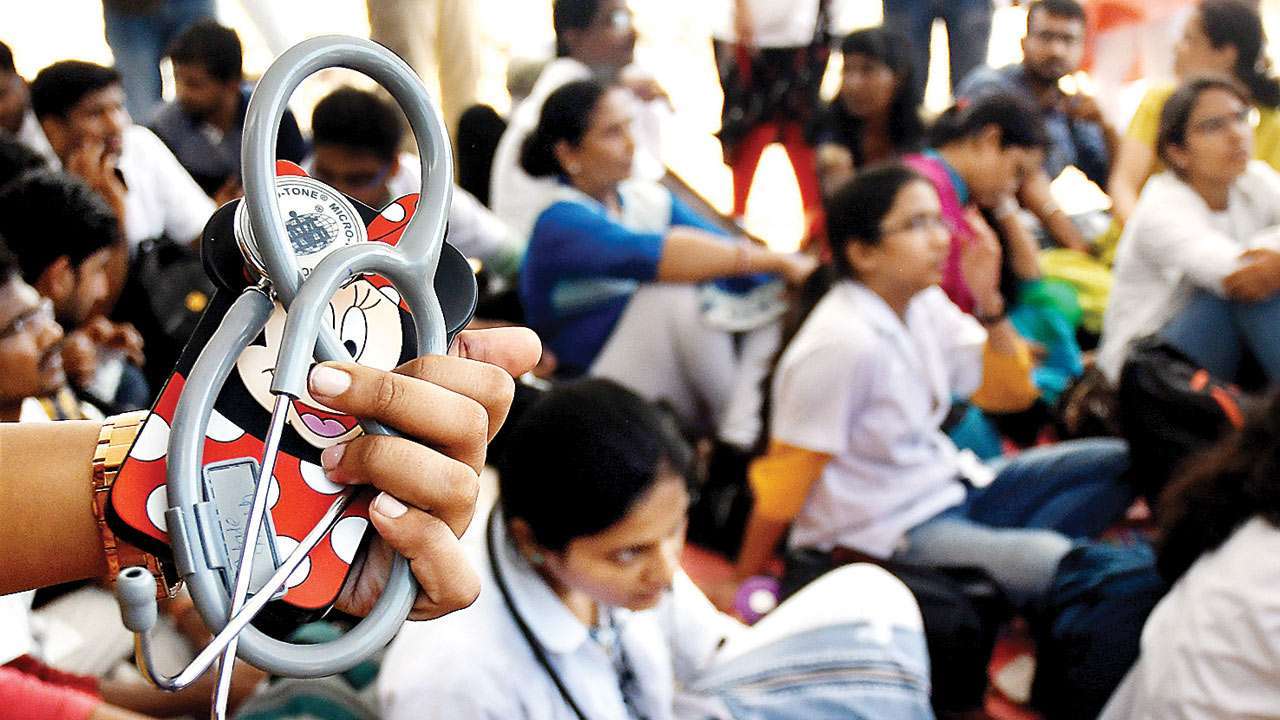Source: greaterkashmir.com
NEET qualifiers with physical disability in J&K face a dark future as the state continues to ignore Medical Council of India guidelines on their reservation in MBBS/BDS courses.
In February 2018, Central Board of School Education issued information bulletin for undergraduate National Eligibility Cum Entrance Test (NEET UG) 2018 for admission to MBBS/BDS courses confirming reservation of 5 per cent seats for disabled candidates, along with schedule on specified disability as per Rights of Persons with Disability Act (RPwD Act). However, in J&K, no such reservation has yet been notified, leaving aspirants, who despite odds have qualified NEET, in lurch.
One such candidate, Safiya Nazir has been running from pillar to post to persuade the authorities to facilitate admission of candidates like her for MBBS course in the state medical colleges.
Nazir, who suffers vision impairment and had appeared in NEET under physically disabled category has obtained 315 marks in NEET and scored 339th All-India rank in the category. However, due to unavailability of a specific ‘physical handicap category’ in the state’s admission policy, Nazir may not avail for herself any benefit.
Chairman Board of Professional Entrance Examinations (BOPEE), Ashraf Bukhari said there is no reservation for physically handicap candidates in admission, although in recruitments, such rules do exist.
He said the Board had kept a provision of extending reservation to aspirants in case government approves it. “We have compilation of all such details in our database,” he said.
He added that the Board had written several times to Government but the Board was not in a position to reserve any category. “It is the State government that would need to act on this,” he said.
Commissioner Secretary, Health and Medical Education Department, Atal Dulloo said that although there was no horizontal reservation for physically disabled candidates, the state did have vertical reservation for disabled persons. “They can be accommodated in any category but no special cut-out of seats for them,” he said.
In a landmark judgment, the Supreme Court had recently ruled that a person with disability cannot be refused admission if he or she has qualified as per his or her merit in the category of persons with disability.
Last year, Union Ministry of Health and Family Welfare increased reservation for persons with disabilities for admission to post graduate medical courses from 3 percent to 5 percent. “The percentage of seats to be filled up by persons with disabilities has been increased from 3% to 5% in accordance with the Rights of Persons with Disabilities Act, 2016. After twenty years the government has taken a historic decision for welfare of Divyang sisters and brothers, ensuring that they are equal contributors to the progress of the nation,” J.P. Nadda, Union Minister for Health and Family Welfare had announced.
“Now all 21 benchmark disabilities as per the Rights of Persons with Disabilities Act, 2016 can register for admission to medical courses,” he had said.
The 21 disabilities are: blindness, low-vision, leprosy cured persons, hearing impairment (deaf and hard of hearing), locomotor disability, dwarfism, intellectual disability, mental illness, autism spectrum disorder, cerebral palsy, muscular dystrophy, chronic neurological conditions, specific learning disabilities, multiple sclerosis, speech and language disability, thalassemia, hemophilia, sickle cell disease, multiple disabilities (including deaf-blindness), acid attack victim and Parkinson’s disease.



